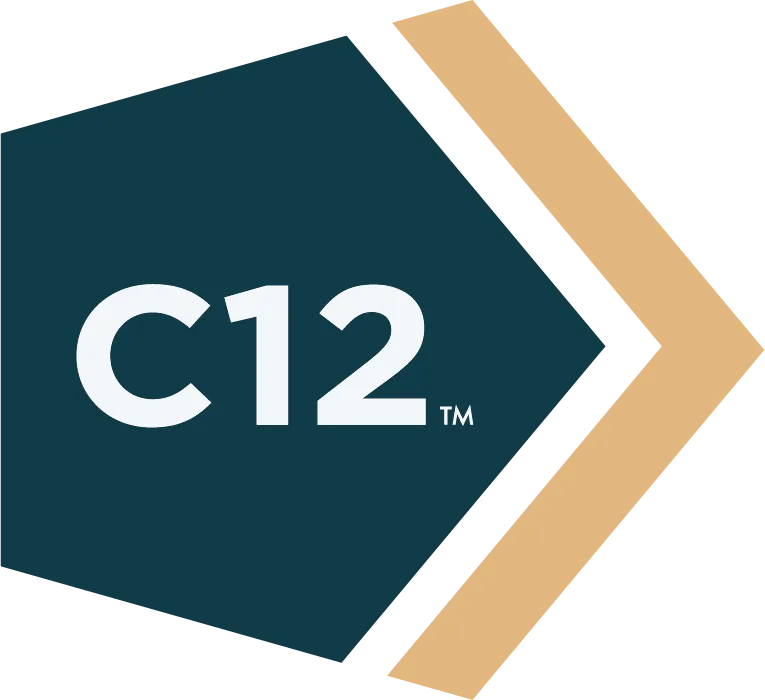The Selling From the Heart Blog

Self-Reflection: The Key to Success as a Sales Professional
"Self-reflection entails asking yourself questions about your values, assessing your strengths and failures, thinking about your perceptions and interactions with others, and imagining where you want to take your life in the future.”
Robert L. Rosen
As we start thinking about this quote, self-reflection entails asking yourself questions about your values, assessing your strengths and failures, thinking about your perceptions and interactions with others, and imagining where you want to take your life in the future.
This becomes essential for personal growth and self-awareness, as it helps you gain an understanding of your core beliefs and motivations, recognize areas for improvement, and sets meaningful goals for your future.
Through self-reflection, you gain deeper insights into your behavior, enhance your relationships, and create a crystal-clear vision for the life you aspire to lead.
A few questions for you to reflect upon:
What are your values?
What are your strengths?
Where do you see your sales career 3 years down the road?
The nature of sales often creates mental turmoil (self-induced at times), craziness and chaos; creating a way to level-set and refocus on what’s important becomes extremely valuable.
Setting aside alone time through self-reflection is a powerful routine to help you become more successful.
You spend more time with yourself than anyone else. How well do you really know yourself?
WHAT IS SELF-REFLECTION?
"Without reflection, we go blindly on our way, creating more unintended consequences, and failing to achieve anything useful."
Margaret J. Wheatley
Originally called ‘reflective consciousness’ by William James, commonly known as the Father of American Psychology, the act of self-reflection is used to aid in survival through learning and adapting. The ability to self-reflect is what many believe to be a hallmark characteristic of being human.
As defined by the Berkeley Well-Being Institute, self-reflection is a mental process you can use to grow your understanding of who you are, what your values are, and why you think, feel, and act the way you do. When you self-reflect and become more conscious of what drives you, you can more easily make changes that help you more easily develop yourself or improve your life.
At its heart, self-reflection is a process of introspection and examination, where you take the time to sift through your thoughts, attitudes, motivations, desires, emotions, and behaviors.
It involves stepping back from your day-to-day activities to create a space for self-awareness and self-analysis.
Self-reflection relies on consistency, courage and discipline.
Self-reflecting encourages you to challenge assumptions, question your own perspectives, as you explore different viewpoints.
It enables you to examine your values, goals, and aspirations, as you reassess whether they align with who you truly are and what you desire to achieve in life.
Some of you might be thinking self-reflection is a daunting task. It's naught. It can be as easy as looking back at your behavior in any scenario, then asking yourself, why you behaved the way you did.
I ask you to think about all the scenarios you find yourself in daily... this provides you ample situations to self-reflect.
Self-reflection builds self-awareness, but only through intention and dedication.
I encourage you to consistently press “the pause button” on your life to create time and space to sit quietly, sifting through your thoughts and interactions, as you inspect them without judgment.
This quote courtesy of John Dewey is so spot on,
"We don't learn from experiences, we learn from reflecting on the experience."
Self-reflection routines:
Help you give you a fresh perspective.
Help you better understand yourself.
Help foster a sense of well-being.
Help provide you better decision-making skills.
Time for a brief intermission. Please find a quiet spot and self-reflect. A little self-talk might refresh your mind, heart and body.
What were your biggest lessons from this last week/month/year? This can be personally and professionally.
What are your proudest moments from this last week/month/year? This can be personally or professionally.
If you continue doing what you’re doing right now, where will you be in three years’ time? This can be personally or professionally.
What areas of your life do you feel satisfied with? Which ones need attention?
What can you do to take better care of yourself mentally, physically, and spiritually?
If you desire to become more productive, impactful, and fulfilled, you must gain clarity on what makes you productive, impactful, and fulfilled.
SELF-REFLECTION IS ALL ABOUT GROWTH
"Look outside and you will see yourself. Look inside and you will find yourself."
Drew Gerard
Plain and simple, success doesn't happen overnight. It's achieved through daily improvement in small consistent increments over disciplined time periods.
In my book, Selling from the Heart, I write about the many differences between sales professionals and sales reps. I believe, sales professionals do the work that many sales reps find excuses not to do.
A true sales professional doesn't sleepwalk through the day nor their career. They work harder on themselves than all the other empty suits combined.
Sales professionals actively think about the things they do. They objectively evaluate themselves on a regular basis. They look at things through an unbiased and clear set of lenses.
I'm sure there are some of you right now saying to yourself, "Larry, are you serious about all of this self-reflection stuff?" Yes, I'm dead-on serious.
Simply view self-reflection as a mindfulness technique. This is where you place yourself in a quiet place and state of mind to recall events or experiences from the past, observe your current state, and then envision your future state.
What concerns me is how many salespeople struggle to allow themselves time to pause and reflect on where they are and where they would like to be.
All this excuse making around self-reflection, eventually leads to:
Failing to look for opportunities to improve.
Lackluster feelings and burning out.
High levels of stress combined with emotional and mental gymnastics.
Lower levels of excitement for a better future.
Think about this one... How can you perform at high levels month in and month out or year over year, if you struggle to become your best self?
SELF-REFLECTION IS ABOUT LOOKING INWARD
Socrates famously said,
“The unexamined life is not worth living.”
Looking inward is not an easy thing to practice. All of us live in this fast-paced, hyper-connected world.
Our mobile phones are constantly buzzing, social media is constantly vying for our attention, and Netflix always has something new to binge on.
Taking the time for reflection and inward thinking is tough. Unfortunately, many of us are living unexamined lives.
Looking inward offers us many benefits. It helps us by fostering self-awareness, enhances our emotional intelligence, creates personal growth, reduces stress, and helps us to become more fulfilled.
2 Corinthians 4:16 reinforces all of this,
"So we do not lose heart. Though our outer self is wasting away, our inner self is being renewed day by day."
The self-reflection journey to sales betterment starts with understanding who you are at your core. It's becoming in tune with your deeper self. It's the ability to recognize what makes you come alive, what makes you happy or sad.
As a sales society, we've become fixated on the outer work. We focus on the stack rankings, where we're at quarter or year to date, key performance indicators, and how many prospecting calls have you made... starting to the get the picture?
Let's all take a step back and realize that these are merely outer symbols. This does not reflect one's inner world, nor being.
The key to sales happiness lies in transforming yourself and your career through the inner work.
When you truly understand who you are, you can make the conscious effort to improve yourself and how you communicate better with others.
How do you deal with your emotions? Especially when deals go astray, and let's face it, this will happen.
How do you react when your clients become unhappy or concerned with their levels of service?
What areas do you need to work on in your personal growth and development?
Are you courageous enough to dig in and ask yourself deep questions?
SELF-REFLECTION HELPS TO DEFINE THE REAL YOU
Getting to know yourself allows you to tap into the road of happiness as this is critical to your success as a sales professional. Your beliefs, your attitude and your daily routines are mission critical.
At this time and in this moment...
What makes your heart sing?
How would you define yourself?
Understanding yourself can mean recognizing your shortcomings. It's about putting them on display for others to judge.
When you place your flaws on display for others to see, you expose your vulnerabilities, which can be daunting but also liberating.
It's important to balance this openness with sensitivity. Not everyone needs to know every flaw, and it's wise to share your vulnerabilities with those who will offer constructive feedback, as opposed to harsh judgment.
It's safe to say that elite sales professionals do more self-reflection than deflection.
DEFLECTION LEADS YOU DOWN THE ROAD TO NOWHERE
This quote must be framed inside every sales bullpen or on the virtual walls,
"Deflection is about protecting one's self-image instead of taking responsibility. If one feels guilty or inadequate about something they did, deflection pushes that feeling away by shifting the focus on to something else."
Aimee Daramus, PSYD
Deflection is when someone communicates something to you that causes you to feel triggered and instead of taking it all in, you flip the conversation into a different direction.
Deflection is used as a shield to prevent the truth. This prevents one from coming face-to-face with themselves and accepting responsibility.
A sales deflector
Nitpicks
Blames others
Constantly make excuses
Plays the victim (Everyone and everything is the problem in their mind except themselves)
Avoids fixing the real problems
A sales reflector
Looks inward
Admits they might be the problem and takes personal accountability
Focuses on fixing the real problems at hand
Makes adjustments
A deflector will lie, while a reflector owns it and starts changing for the best.
Deflection is when you can’t or won’t accept full or partial responsibility for your actions and thus you place blame on someone else.
Galatians 6:5 further reinforces all of this,
"For we are each responsible for our own conduct."
REFLECT YOUR WAY TO SALES SUCCESS
The questions you ask yourself will ultimately affect the sales life you lead.
The questions you ask yourself will determine what your mind focuses on, which will trigger certain thoughts, actions, and inactions, ultimately affecting your sales results.
I encourage you to create a daily habit of self-reflection.
Set aside 15 minutes a day to practice self-reflection. Start focusing in on the important things in life, such as your emotional and mental well-being. Train yourself in practicing mindfulness.
Making this minor change will improve your well-being, strengthen your relationships (personal and professional), make you a better person, and help you gain strides in your personal and professional development.
You have nothing to lose and everything to gain from starting your self-reflection journey.
Go out and find the person you have often neglected and whose hand you have let go all too often. And folks, that hand would be yours.
I will leave you all with this... What questions will you ask yourself daily?
Originally published on Larry Levine's LinkedIn.




